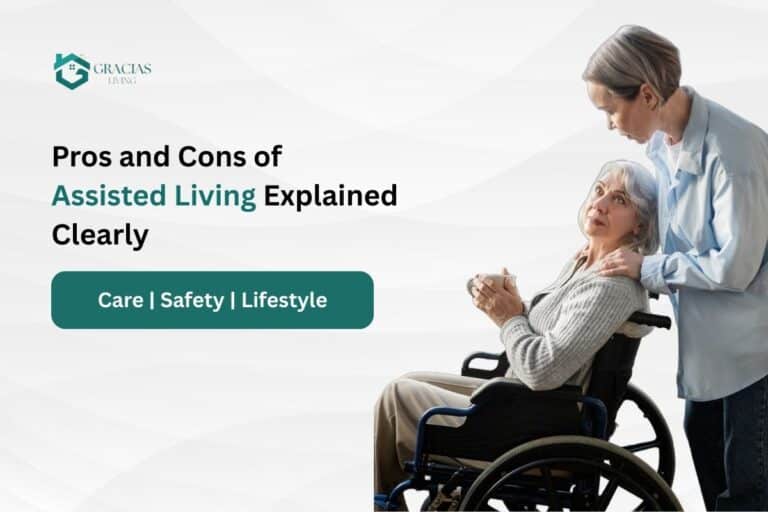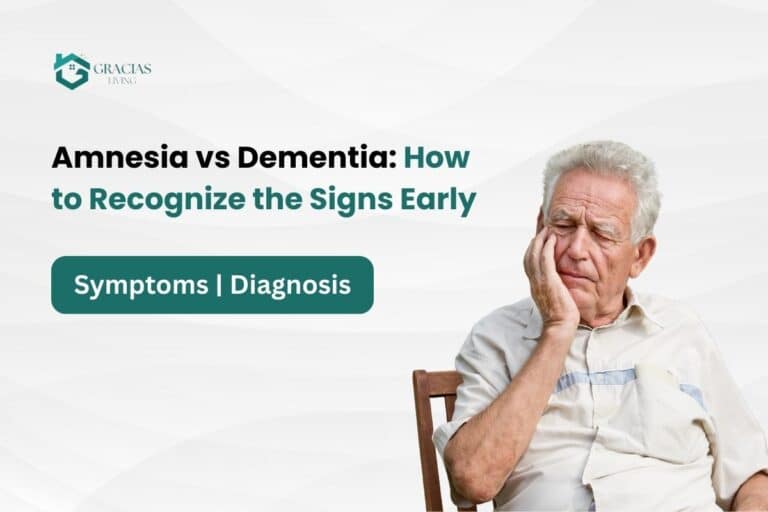Quick Summary of the article:
- Dementia is a condition where a person’s mental function declines, affecting their memory, reasoning, language, mood, behavior, and coordination.
- Dementia can be caused by various factors, including genetics, age-related changes in the brain, lifestyle choices, and environmental factors.
- Dementia progresses through stages, with symptoms worsening over time. Early stages may involve mild memory loss, while later stages can lead to significant cognitive decline and functional impairment.
- Symptoms of dementia include memory loss, confusion, difficulty communicating, changes in mood or behavior, and problems with coordination.
- A thorough evaluation by a healthcare professional is necessary for an accurate diagnosis of Dementia.
Understanding Dementia
Dementia is a condition where a person’s mental function declines, affecting their memory, reasoning, language, mood, behavior, and coordination.
It’s not a specific disease but rather a description of mental decline that interferes with daily life.

1. Types of Dementia
There are several types of dementia, including Alzheimer’s disease or vascular dementia, Lewy body dementia, and frontotemporal dementia. Each type involves different underlying causes and symptoms.
2. Stages of Dementia
Dementia progresses through stages, with symptoms worsening over time. Early stages may involve mild memory loss, while later stages can lead to significant cognitive decline and functional impairment.
3. Causes of Dementia
Dementia can be caused by various factors, including genetics, age-related changes in the brain, lifestyle choices, and environmental factors.
4. Risk Factors of Dementia
Advanced age is a primary risk factor for dementia, with the likelihood of developing it increasing with age.
Other risk factors include a family history of dementia, certain genetic factors, and lifestyle factors such as smoking, poor diet, and lack of physical activity.
Symptoms and Diagnosis of Dementia
1. Dementia Symptoms
Symptoms of dementia include memory loss, confusion, difficulty communicating, changes in mood or behavior, and problems with coordination.
These symptoms can vary depending on the type and stage of dementia.
2. Dementia Diagnosis
Diagnosing dementia involves assessing a person’s medical history, conducting cognitive tests, and performing imaging tests such as MRI or CT scans to rule out other conditions.
A thorough evaluation by a healthcare professional is necessary for an accurate diagnosis.

Dementia Care Principles
1. Person-Centered Care
Understanding individual needs, preferences, and abilities.
- Identifying Triggers: Recognizing potential stressors like unfamiliar environments or communication difficulties can help anticipate and address behaviors.
- Empathy and Compassion: Acknowledging that the person with dementia is not intentionally difficult and responding with patience and understanding.
- Creating a Calm Environment: Modifying surroundings to minimize stressors such as noise, clutter, or confusing stimuli.
- Encouraging Engagement: Involving the person in meaningful activities tailored to their interests and abilities.
2. Communication Techniques
Effective ways to communicate with someone who has dementia.
- Non-Verbal Cues: Using facial expressions, tone of voice, and body language to convey messages and emotions.
- Simplicity and Clarity: Using simple language and clear instructions to aid comprehension.
- Active Listening: Paying attention to the person’s non-verbal cues and responding with empathy and patience.
- Validation and Reassurance: Validating their emotions and providing reassurance to reduce anxiety and confusion.
3. Behavior Management
Strategies for managing challenging behaviors (agitation, aggression, wandering).
- Identifying Triggers: Observing body language and environmental cues to determine the underlying cause of behavior.
- Creating a Calm Environment: Modifying surroundings to reduce stressors and promote relaxation.
- Engaging in Physical Activity: Encouraging regular exercise to alleviate stress and improve mood.
- Using Music Therapy: Playing calming music or familiar tunes to soothe and distract from distressing behaviors.
- Implementing Safety Measures: Installing safety devices and having a plan in place to prevent wandering and ensure a prompt response if the person does wander.
4. Caregiving Strategies of Dementia Care
- Daily Care Needs: Providing assistance with activities of daily living (ADLs) is essential. This includes tasks like bathing, dressing, and eating, which may become increasingly challenging as dementia progresses.
- Safety Measures: Ensuring home safety through modifications, preventing falls, and managing wandering behaviors is crucial. This includes installing grab bars, removing tripping hazards, and utilizing alarms or locks to prevent wandering.
- Nutrition and Exercise: Emphasize the importance of maintaining a balanced diet and engaging in regular physical activity. This can help improve overall health and well-being, while also potentially slowing down the progression of dementia.
- Communication and Patience: Approach caregiving with empathy and patience. Maintain eye contact, speak calmly, and repeat requests using the same words if needed. Offering simple choices and problem-solving together can empower the individual and foster a sense of control.
- Understanding Individual Preferences: Respect the individual’s preferences and choices, even if they differ from the caregiver’s goals or timelines. Recognize that each person’s pace and priorities may vary, and accommodate these differences with flexibility and understanding.
- Anticipating Needs: Plan ahead for daily activities, appointments, and transitions. Anticipate potential challenges, such as delays in preparation or unexpected requests, and allocate sufficient time and resources to address them calmly and effectively.
- Promoting Independence: Encourage independence whenever possible, while still providing necessary support and assistance. Allow the individual to participate in tasks to the best of their ability, promoting a sense of autonomy and dignity.
- Seeking Support: Caregiving can be physically and emotionally demanding. Reach out to support networks, including family, friends, and professional caregivers, for assistance and respite when needed. Taking care of oneself is essential for providing quality care to others.
- Flexibility and Adaptability: Be prepared to adapt caregiving strategies as the individual’s needs and abilities change over time. Stay open to new approaches and resources that can enhance the quality of care and improve the overall caregiving experience.
- Self-Care: Prioritize self-care to prevent burnout and maintain overall well-being. This includes attending to physical, emotional, and social needs, seeking opportunities for relaxation and enjoyment, and setting realistic expectations for oneself as a caregiver.
5. Medication Management in Dementia Care
- Medications: In dementia, people may need medications to help with pain, agitation, or mood changes. These drugs can have benefits, like easing discomfort, but they also might have side effects, such as making someone feel sleepy or unsteady. It’s important to keep an eye on these side effects and adjust medication doses as needed.
- Comorbid Conditions: Alongside dementia, someone might have other health issues like high blood pressure or diabetes. Managing these conditions is important for overall health. It’s crucial to consider how medications for dementia and other conditions might interact with each other. Regular communication between doctors helps ensure that all aspects of a person’s health are taken care of.
- Palliative and End-of-Life Care: As dementia progresses, the focus shifts to making the person as comfortable as possible. This involves managing symptoms like pain or agitation. Since people with advanced dementia may not be able to make decisions for themselves, their loved ones or caregivers often need to make choices for them. Family members also need support to cope with the challenges of caregiving. Working together with healthcare providers early on can make sure that everyone’s needs are addressed.

Technological and Innovative Approaches-Assistive Devices for Daily Living
1. Inside the Home
- Voice-Controlled Devices: Gadgets like smartphones and smart speakers (like Alexa) can help by setting reminders, turning lights on and off, or playing music with just your voice.
- Simple Remote Controls: Universal remotes with fewer buttons make it easier to operate TVs and other devices.
- Easy-to-Use Phones: Telephones with big buttons and speed dial make it simple to call important contacts quickly.
- Comfortable Chairs: ‘Rise and recline’ chairs make sitting and standing easier for people with mobility issues.
- Helpful Gadgets: A camera doorbell lets you see who’s at the door without having to get up.
- Dementia Clocks: These clocks clearly show the time, day, date, and whether it’s morning, afternoon, or evening, helping people keep track of time.
- Accessible Tablets: Tablets with just one button are easier to use for people who may struggle with technology.
- Screen Readers: These tools read out text on computers, smartphones, and tablets, making it easier for those with vision or comprehension difficulties to navigate technology.
- Safety Alarms: Smoke alarms and heat detectors should be placed in key areas of the home and tested regularly to ensure safety.
2. Bedroom
- Assistive Bedding: Slide sheets make it easier to turn over in bed, while adjustable beds help with mobility.
- Dressing Aids: Tools like zip pulls and adaptive clothing make getting dressed easier for people with mobility or dexterity issues.
- Nightlights: Battery-operated lights help people see at night without disturbing others.
3. Bathroom
- Toileting Aids: Commodes, raised toilet seats, and portable urinals assist with personal hygiene.
- Smart Toilets: These toilets include washers and dryers for added hygiene.
- Overflow Plugs: Prevent flooding by draining water when it reaches a certain level.
- Bath/Shower Aids: Shower seats, bath lifts, and grab rails provide support and safety.
4. Outside the Home
- Car Seat Cushions: Turntable cushions make getting in and out of cars easier.
- Motion-Activated Lighting: Lights that turn on when they detect movement improve safety outside the home.
- Smartphone Apps: Apps like Flush and Toilet Finder help locate public toilets easily.
- Radar Keys: Provide access to locked disabled toilets in public places.
- GPS Trackers: Discreet devices help locate a person with dementia if they get lost.
- Key Safes: Allow trusted people to access the home with a code when needed.

Ethical and Cultural Considerations
- Cultural Competence: It’s important to provide care that respects and considers the cultural background of individuals with dementia. This means being sensitive to their cultural beliefs, values, and practices, and adapting care accordingly.
- Ethical Issues: In dementia care, ethical considerations revolve around consent, autonomy, and the dilemmas that arise when balancing the individual’s wishes with their safety and well-being. It’s crucial to respect the person’s autonomy while also ensuring their safety and addressing the needs of family caregivers and professional caregivers.
Research and Future Directions
- Current Research: There are ongoing studies focusing on understanding the causes of dementia, developing new treatments, and improving care strategies. These studies aim to enhance our knowledge and find more effective ways to support individuals living with dementia and their caregivers.
- Emerging Treatments: In the future, there may be new therapies and care models that offer promising approaches to managing dementia. These could include innovative treatments targeting underlying causes of the disease or novel care approaches that prioritize individual needs and preferences. Continued research and development in this area hold the potential to significantly improve the quality of life for people affected by dementia.
Conclusion
As I conclude, let’s remember that every step taken in the journey of dementia is significant.It’s a path with highs and lows, but each moment holds its own special meaning.
To those living with dementia and their caregivers, your journey matters deeply. May you find comfort in the love you share, honoring the courage and dignity of everyone touched by dementia.




